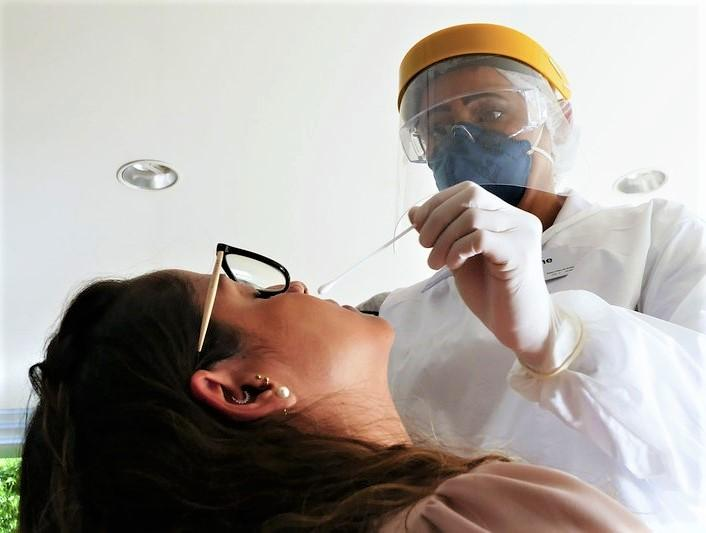Black and non-Hispanic healthcare professionals (HCPs) of other races and those without graduate degrees were more likely than their White peers and clinical HCPs with graduate degrees to experience delayed COVID-19 testing in the first 2 years of the pandemic, finds a multicenter, test-negative case-control study.
The Brigham and Women's Hospital–led study used data from the Preventing Emerging Infections Through Vaccine Effectiveness Testing study, which enrolled HCPs tested for COVID-19 after experiencing symptoms from December 2020 to April 2022.
The research was published yesterday in JAMA Network Open.
Delays can lead to transmission
Of the 5,551 HCPs, 82.9% were women, 35.2% were aged 25 to 34 years, 76.3% were White, 6.7% were Black, and 5.8% were Asian. The vast majority of participants (84.4%) had two or fewer underlying illnesses, 19.9% had a clinical role and a graduate degree, and 28.1% had a clinical role and some college education, a college degree, or technical degree.
Time to testing may substantially alter personal and professional decisions to isolate, thus having the potential to impact the spread of infection.
A total of 18.5% were nonclinical HCPs who had a graduate degree; 30.1% were nonclinical with some college education, a college degree, or a technical degree; 3.3% were nonclinical with a high school education or less; and educational and job information was unknown for four participants. Of all HCPs, 74.6% had completed the COVID-19 primary vaccination series.
"This metric is important because time to testing may substantially alter personal and professional decisions to isolate, thus having the potential to impact the spread of infection," the study authors wrote. "Second, delays in testing may also lead to false-negative results. Third, understanding the timeliness of testing allows us to compare subgroups for demographic disparities in testing as well as to identify organizational or structural constraints."
Chronic illnesses, obesity tied to delayed tests
In total, 37.1% reported delayed testing (3 or more days after symptom onset), and 3,491 (62.9%) reported early testing (within 2 days). Relative to White HCPs, Black participants were more likely to report delayed testing (adjusted risk ratio [aRR], 1.18), as were non-Hispanic HCPs of other races (aRR, 1.17). There were no significant differences by age or sex.
Compared with graduate-level clinical HCPs, clinical HCPs with some college, a college degree, or technical degree (aRR, 1.25) and nonclinical HCPs with graduate-level training were more likely to report testing delays (aRR, 1.26). Participants with a high school education or less (clinical or nonclinical) had a higher risk of delayed testing than graduate-level clinical HCPs (aRR, 1.36).
The proportion of delayed testing differed by month (ranging from 25.5% in March 2022 to 54.1% in July 2021) and site (27.7% to 61.1% among the 15 healthcare facilities).
If the timeliness and importance of testing is not recognized in HCP, it will continue to be a barrier that propagates the existing racial disparities from the pandemic.
Clinical factors tied to delayed testing were the presence of three or more underlying conditions (unadjusted risk ratio [uRR], 1.21), asthma (uRR, 1.14), and obesity (uRR, 1.17). Delayed testing was not different amid the Delta or Alpha variant waves (uRR, 0.97) but was lower in the Omicron wave (uRR, 0.84). Compared with the unvaccinated, those with incomplete (uRR, 0.84; 95% CI, 0.74-0.96) or full vaccination (uRR, 0.85) were less likely to experience testing delays.
Early in the pandemic, COVID-19 testing was a substantial challenge owing to the low availability of tests. But once testing became more broadly available, variability in symptomatic testing rates continued, the authors noted.
"These findings suggest that future investigations into the systemic factors or barriers contributing to race and ethnicity differences in COVID-19 testing after symptom onset must be explored in an effort to minimize COVID-19 spread," the researchers concluded. "If the timeliness and importance of testing is not recognized in HCP, it will continue to be a barrier that propagates the existing racial disparities from the pandemic."




















